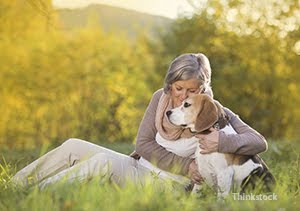Follow our tips to keep cats, dogs and horses safe and comfortable
 Pets are happiest and healthiest when kept indoors, especially during extreme cold snaps. iStockphoto
Pets are happiest and healthiest when kept indoors, especially during extreme cold snaps. iStockphoto
In many areas, winter is a season of bitter cold and numbing wetness. Make sure your four-footed family members stay safe and warm by following these simple guidelines:
Keep pets indoors
The best prescription for winter's woes is to keep your dog or cat inside with you and your family. The happiest dogs are taken out frequently for walks and exercise but kept inside the rest of the time.
Don't leave pets outdoors when the temperature drops. During walks, short-haired dogs may feel more comfortable wearing a sweater. No matter what the temperature is, windchill can threaten a pet's life. Pets are sensitive to severe cold and are at risk for frostbite and hypothermia during extreme cold snaps. Exposed skin on noses, ears and paw pads can quickly freeze and suffer permanent damage.
Share to keep animals warm and safe!
Take precautions if your pet spends a lot of time outside
A dog or cat is happiest and healthiest when kept indoors. If for some reason your dog is outdoors much of the day, he or she must be protected by a dry, draft-free shelter that is large enough to allow the dog to sit and lie down comfortably but small enough to hold in his/her body heat. The floor should be raised a few inches off the ground and covered with cedar shavings or straw. The doorway should be covered with waterproof burlap or heavy plastic.
Help neighborhood outdoor cats
If there are outdoor cats, either owned pets or community cats (ferals, who are scared of people, and strays, who are lost or abandoned pets) in your area, remember that they need protection from the elements as well as food and water. It's easy to give them a hand.
Give your pets plenty of food and water
Pets who spend a lot of time outdoors need more food in the winter because keeping warm depletes energy. Routinely check your pet's water dish to make certain the water is fresh and unfrozen. Use plastic food and water bowls; when the temperature is low, your pet's tongue can stick and freeze to metal.
Be careful with cats, wildlife and cars
Warm engines in parked cars attract cats and small wildlife, who may crawl up under the hood. To avoid injuring any hidden animals, bang on your car's hood to scare them away before starting your engine.
Protect paws from salt
The salt and other chemicals used to melt snow and ice can irritate the pads of your pet's feet. Wipe all paws with a damp towel before your pet licks them and irritates his/her mouth.
Avoid antifreeze poisoning
Antifreeze is a deadly poison, but it has a sweet taste that may attract animals and children. Wipe up spills and keep antifreeze (and all household chemicals) out of reach. Coolants and antifreeze made with propylene glycol are less toxic to pets, wildlife and family. Read more about pets and antifreeze »
Speak out if you see a pet left in the cold
If you encounter a pet left in the cold, politely let the owner know you're concerned. If they don't respond well, document what you see: the date, time, exact location and type of animal, plus as many details as possible. Video and photographic documentation (even a cell phone photo) will help bolster your case. Then contact your local animal control agency or county sheriff's office and present your evidence. Take detailed notes regarding whom you speak with and when. Respectfully follow up in a few days if the situation has not been remedied.
Horse owners: provide special care to your outdoor pets
Give your horses shelter and dry warmth
Be sure your horses have access to a barn or a three-sided run-in so they can escape the wind and cold.
While not all horses will need to be blanketed, blankets will help horses keep warm and dry, especially if there is any rain or snow. If you’ve body-clipped your horses, keep them blanketed throughout the winter.
Supply food and water to your horses around the clock
Give your horses access to unfrozen water at all times. You can use heated buckets or water heaters/deicers to make sure the water doesn’t freeze.
Feed your horses more forage—unlimited amounts, if possible—during extreme cold. This will help your horses create heat and regulate their body temperatures.
Coupon for Pets:



 Parrots
Parrots


